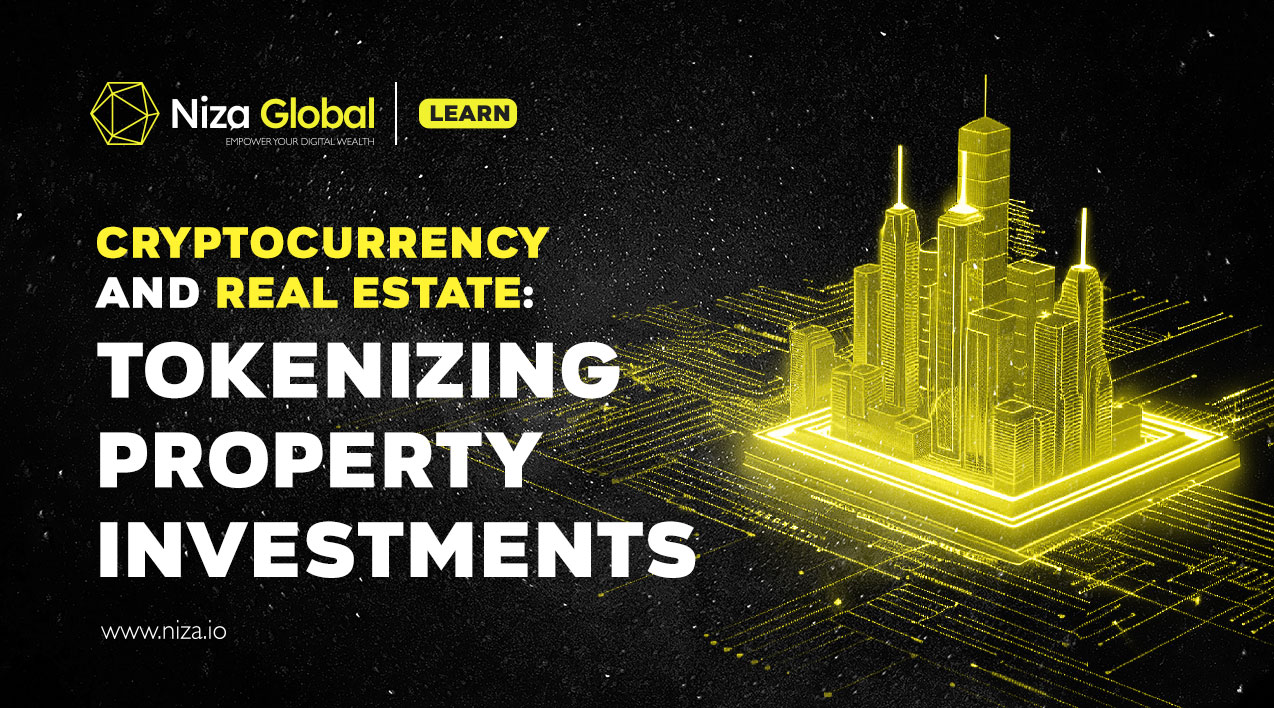Blockchain technology has rapidly expanded its influence beyond cryptocurrencies, revolutionizing industries like real estate. Tokenizing property investments—a process that uses blockchain to make real estate more accessible, liquid, and transparent—is one of the most promising applications. This article explores the concept of real estate tokenization, its advantages, challenges, and its potential to transform property investments.
Understanding Tokenization of Real Estate
What is Tokenization?
Tokenization involves converting ownership rights of a physical asset into digital tokens on a blockchain. For real estate, this means representing property ownership or fractional shares through tokens. Each token can symbolize a specific percentage of a property, enabling trading and investment similar to stocks.
How Does Tokenization Work?
- Asset Identification: A property is chosen for tokenization.
- Legal Structuring: Ownership is transferred to a legal entity, such as a Special Purpose Vehicle (SPV), which issues tokens.
- Token Creation: Digital tokens representing shares of the property are minted on a blockchain.
- Token Distribution: These tokens are sold to investors via platforms or exchanges.
- Trading and Liquidity: Investors can trade tokens on secondary markets, introducing liquidity to a traditionally illiquid asset class.
Benefits of Tokenizing Real Estate
1. Increased Accessibility
Tokenization lowers the financial barriers to real estate investment by enabling fractional ownership. Investors can purchase small shares of high-value properties, democratizing access to this lucrative market.
2. Enhanced Liquidity
Real estate has traditionally been illiquid, with lengthy sales processes. Tokenization allows property shares to be traded on secondary markets, providing investors with greater flexibility and quicker access to capital.
3. Transparency and Security
Blockchain technology ensures all transactions are recorded on an immutable ledger, reducing fraud risks. Ownership records are tamper-proof, and smart contracts automate processes like rent collection and profit distribution.
4. Cost Efficiency
Tokenization eliminates intermediaries, reduces paperwork, and streamlines processes, cutting costs for both investors and property owners.
Challenges and Considerations
1. Regulatory Hurdles
Real estate is a heavily regulated industry. Integrating blockchain introduces new challenges, including compliance with securities laws, property regulations, and taxation requirements. Evolving regulatory frameworks will be critical to the widespread adoption of tokenization.
2. Technology Adoption
Blockchain adoption in real estate remains in its infancy. Educating stakeholders—property owners, investors, and regulators—is essential for building trust and fostering understanding of the technology’s benefits.
3. Market Volatility
The volatility of cryptocurrencies can affect tokenized property shares. Using stablecoins or other mechanisms to mitigate this risk can provide more stability for investors.
Notable Example: Propy
Propy is a global real estate marketplace leveraging blockchain for property transactions. It enables cross-border deals and offers tokenization services, allowing property owners to convert their assets into digital tokens.
Future Prospects
1. Expansion of Use Cases
Tokenization could extend to diverse real estate assets, including commercial properties, vacation rentals, and land. Real estate investment trusts (REITs) on blockchain may also emerge, broadening investment opportunities.
2. Integration with Decentralized Finance (DeFi)
Decentralized finance opens new possibilities for tokenized real estate. Property tokens could serve as collateral for loans or be staked to earn returns, introducing innovative financial products and services.
3. Global Market Accessibility
Tokenization could unlock global real estate markets, allowing investors worldwide to purchase shares in properties across different countries. This fosters cross-border investment and diversification.
Conclusion
Tokenizing real estate represents a groundbreaking shift in property investments, leveraging blockchain to improve accessibility, liquidity, and transparency. Despite challenges such as regulatory compliance and market volatility, the potential benefits make this a promising development. As blockchain adoption grows, tokenization could become a standard practice, reshaping the way real estate assets are bought, sold, and managed. The future of property investment is undeniably digital, with tokenization leading the way toward a more inclusive and efficient market.


